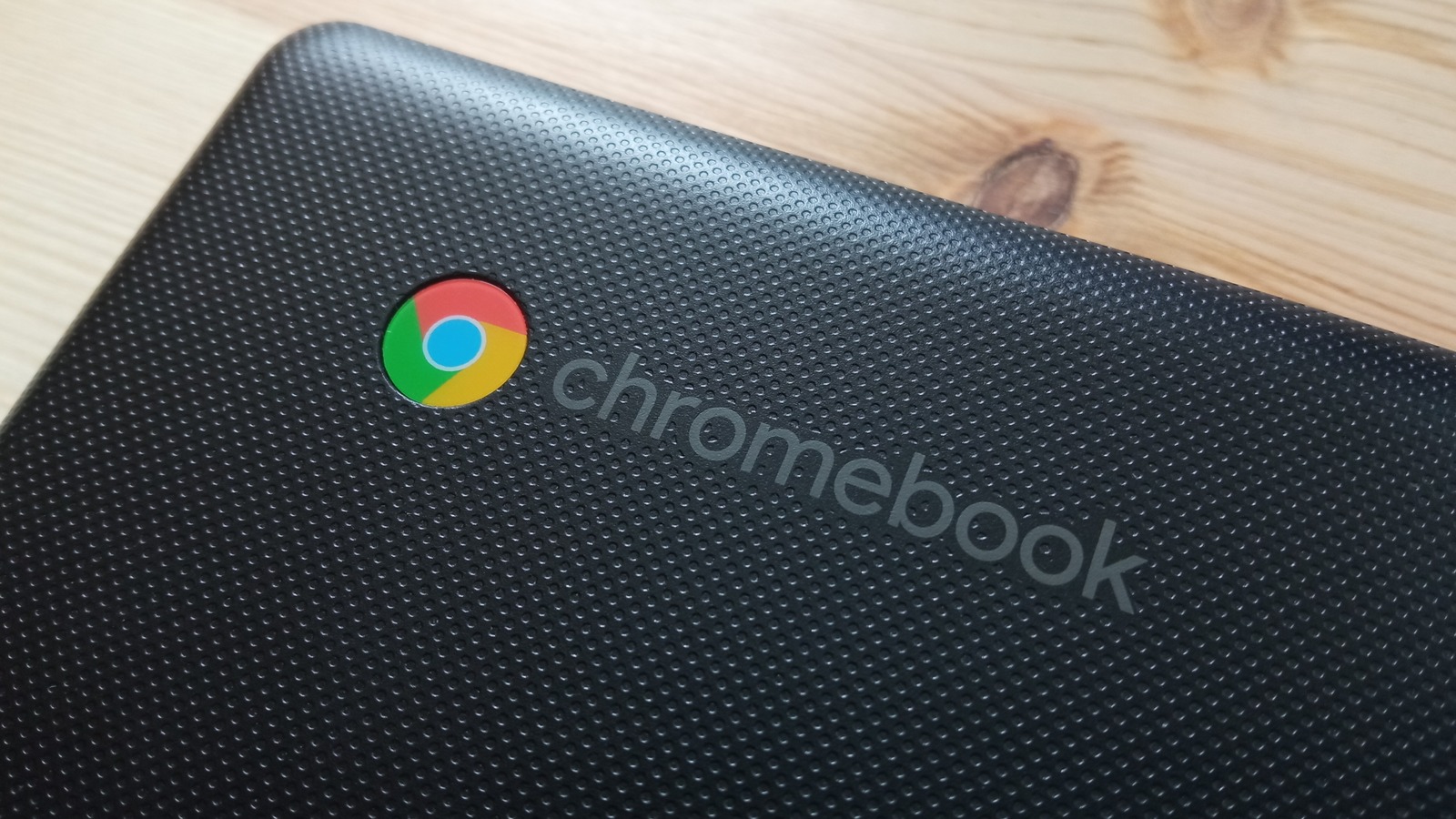 Marek Sowa/Shutterstock
Marek Sowa/Shutterstock
Google first introduced the Chromebook in collaboration with Acer and Samsung in 2011. When it first came out, ChromeOS was much like the Chrome browser, with extended capabilities to run an entire desktop. However, over time, Google introduced new features to ChromeOS, and now in 2025, it has matured into an operating system that you can use in your daily life, right from editing to programming and everything in between. Whether ChromeOS is better than Windows is debatable, but one thing that you will notice for sure is the snappy performance of the former. That is thanks to ChromeOS being cloud-based, meaning the data and applications are stored online rather than on the device itself.
I got my first Chromebook in 2021, a Chromebook 4 from Samsung (16GB RAM and 512GB SSD model). My first impression — which still sums up who a Chromebook is for — was that if you depend on Google and its services for everyday tasks like emails, presentations, editing documents, etc., then a Chromebook is for you. Then I got my Chromebook Plus, which is a bit more advanced than a normal Chromebook. It also gives you the flexibility of running Android apps, web apps, and Chrome extensions. And thanks to ChromeOS being based on Linux, you can unlock its hidden features, such as running some full-fledged desktop apps not available on the ChromeOS app store.
But there are several apps for which you don't need to run any commands to get them. They are easily available for a Chromebook and are free. Let's check them out.
LocalSend
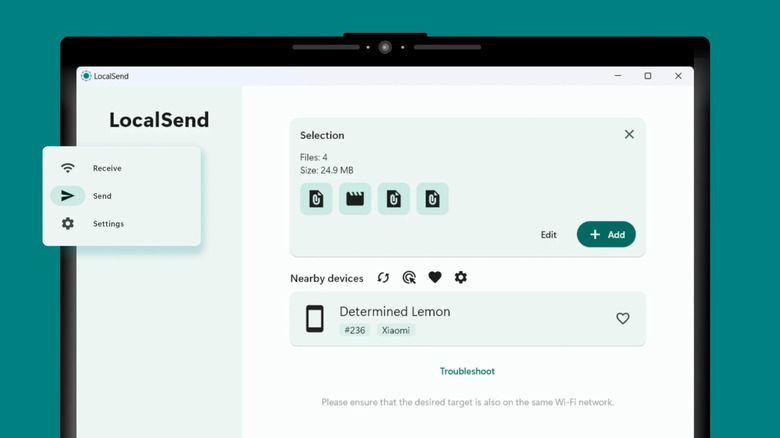 LocalSend
LocalSend
LocalSend is a great app for wirelessly sending anything. You can use the app on any device, since it comes with cross-platform support, and send to any other device. There is also a web app that you can use on any device that can run a web browser. LocalSend is one of the best free apps and can handle any type of files, be it photos, videos, music files, or even texts or links. While Nearby Share is a good alternative, and it comes built-in to a Chromebook, I found LocalSend to be faster and more seamless.
You don't need to have an active internet connection to use LocalSend to transfer files. All you need to do is use local Wi-Fi (hotspot) or LAN to move files from one device to another — no Bluetooth, no location access, nothing. The app doesn't track your data or files, and everything is encrypted between the sender and the receiver. There are no ads whatsoever, which is something rare for a free app, especially today.
After you launch the app for the first time, your device gets a cute fruit-based name. The app's UI is intuitive, and it supports light and dark themes. One of the best free apps to get as soon as you get your Chromebook.
Tor Browser
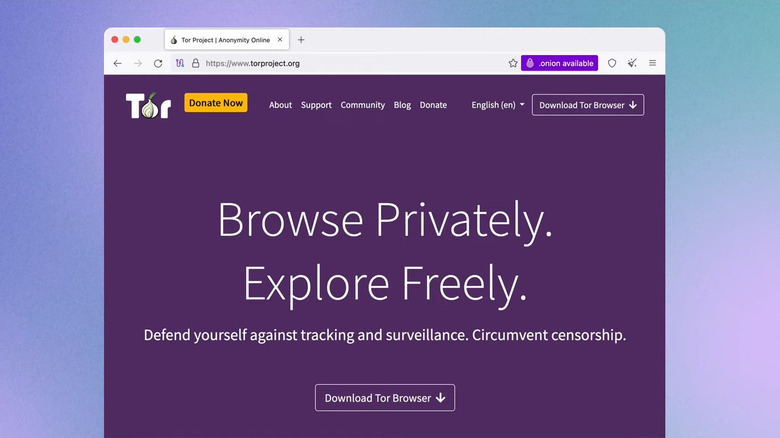 The Tor Project/YouTube
The Tor Project/YouTube
There are plenty of web browsers available on the internet that are compatible with ChromeOS. They claim to offer an ad-free, intuitive, clean, and privacy-focused experience. However, that may not be true for most of them. But Tor Browser is different, as it does what it says. Although Tor Browser isn't officially available for Chromebook, you can install the Android version and enjoy all of its features, and there are plenty. Firstly, it makes use of onion routing to direct your traffic, which creates anonymity for those surfing the internet and gives you a high level of privacy when browsing.
Your browsing data is encrypted, and you get the option to choose among three levels of security — Standard (enabled by default), Safer, and Safest. These options, according to Tor Browser, disable website features that can pose risks. Audio and video also become click-to-play, among other security features. Tor Browser can come in handy in regions where internet freedom is limited, as it will help you stay anonymous. It can also bypass censorship firewalls, letting you access blocked websites and content.
I have been using Samsung Internet Browser on my Android and Tor Browser on my current Chromebook, and I ditched Google Chrome a long time ago. For now, Tor Browser, with all its security features, is a bit more compelling, especially in a world where your move can be tracked.
Proton VPN
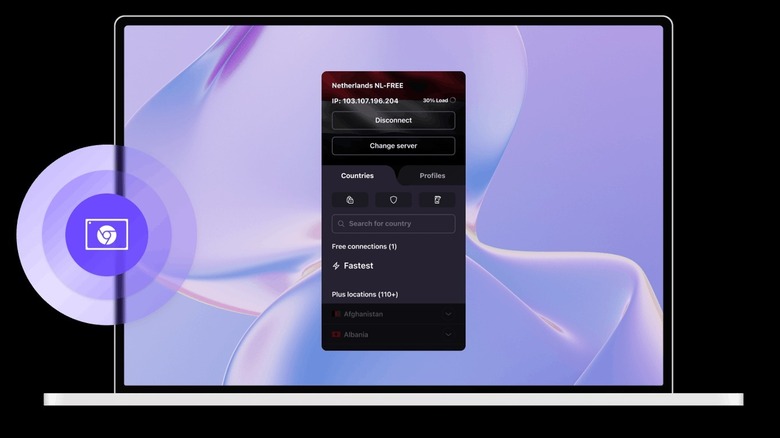 Proton VPN
Proton VPN
The internet is full of resources, but it becomes difficult when some resources are region locked. To bypass geo-restrictions, you need a VPN. A VPN, which stands for Virtual Private Network, is useful not only to access region-locked content but also to enhance privacy and mask your IP address and online activity. Proton VPN is what I've been using for a while, and by far it has been one of the best VPNs. Even in the free version, you get access to high-speed servers and can change to a different location (though that can be done a limited number of times).
Proton VPN is available for almost all types of devices, be it a Windows or macOS laptop, Android or iOS device, or web browsers like Chrome, Firefox, Chromebook, and even Android TV and Fire TV. Using this, you can safely connect to a public Wi-Fi and keep your IP address safe from hackers or other malicious people. It comes with a strict no-logs policy, meaning none of your browsing history or metadata gets recorded. One of the highlights of Proton VPN, compared to the other VPN apps I've used, is the fact that there are no ads whatsoever, even in the free version.
It makes use of VPN protocols such as OpenVPN, IKEv2, WireGuard®, and its own Stealth, which keeps you safe online. Paying a price to unlock the premium version also doesn't feel unnecessary, as you unlock 10 Gbps servers, worldwide streaming, NetShield Adblocker, and more.
VLC Player
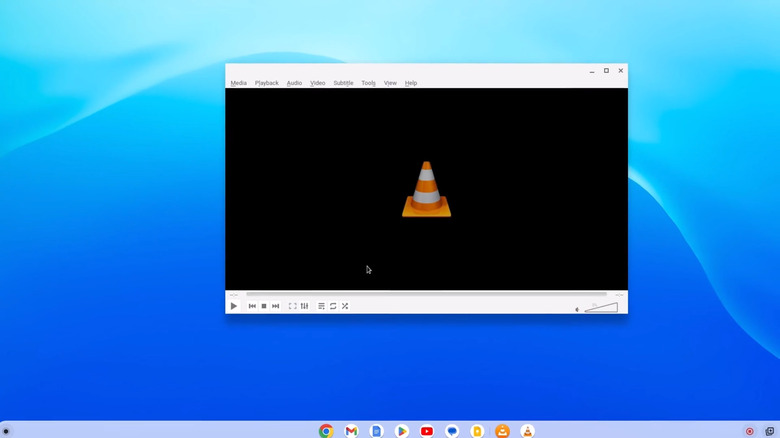 thecoderworld/YouTube
thecoderworld/YouTube
Probably everyone's favorite media player on any device, VLC, is on our list of the essential apps for a Chromebook for a simple reason: its versatility. VLC media player can handle almost any type of audio or video file format you throw at it. The Android version, which is the one that you will be able to install on your Chromebook, is a ported version that can also run media from network storage and drives. With VLC, you also get the option to explore the media on any drive or external drives.
VLC Player is feature-rich. It comes with the option for autorotation, aspect ratio adjustments, an equalizer, and other tweaks to make your viewing experience better. It can even be used to view photos if you don't have a reliable photo viewing app. What I've found interesting is that after so many years of using VLC, only a few apps have come close to it. NOVA Player, for instance, is something that I've been using on my Android TVs, as it not only loads media faster than VLC but also loads all files, which sadly VLC media player misses out on. However, the area where VLC shines is its ability to play any type of file almost instantly.
The app is available for free, gets regular updates, and is as smooth as it was back in the day. A must-have for anyone using a Chromebook.
ChatGPT
 thecoderworld/YouTube
thecoderworld/YouTube
The world is always looking to shift towards convenience, and AI now plays a major part in it. And who better than ChatGPT to lead the way? It was ChatGPT that kicked off the AI revolution. While there are a plethora of AI chatbots available that may be more feature-rich than ChatGPT, it has a different place among them. Many people still end up opening ChatGPT first, even after experimenting with other AI options. The free version is sufficient for your daily tasks, such as brainstorming ideas, creating a draft script, asking questions, generating Ghibli and other artworks, etc.
While the web version of ChatGPT works well, having a dedicated app means you get better OS integration, voice control, and other perks like quick access. Since there is no dedicated ChromeOS version of ChatGPT available, you can get the Android version and install it on your Chromebook.
If you are a student, then ChatGPT can be helpful in summarizing PDFs and documents, arranging things for Excel, scraping data from it — the possibilities are huge. Overall, it's a must-have whether you are a working professional, a student, or just a regular user.
Methodology
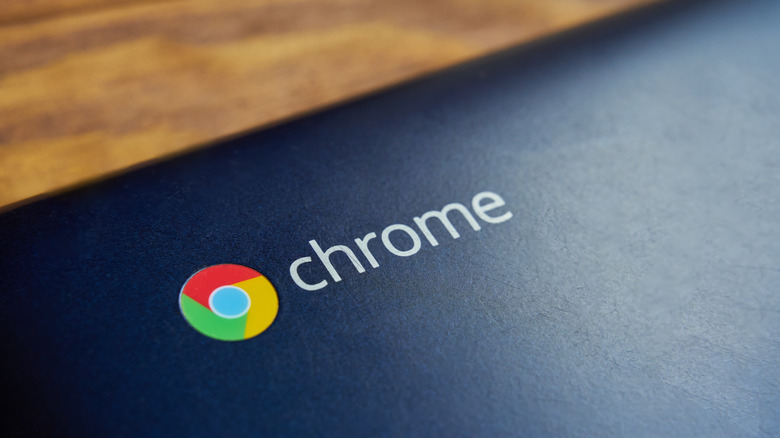 Savusia Konstantin/Getty Images
Savusia Konstantin/Getty Images
I have used these apps on my Samsung Chromebook for a long time. While there are several other worthy options out there, these apps were chosen based on their functionality and their direct impact on day-to-day use. For instance, a VPN helps users unblock geo-restricted pages and explore things on the internet. Similarly, a media player that can handle any file format is a must-have, since the default one is quite limited. Each app featured in this list was included because it consistently improved my overall Chromebook experience during regular use.
